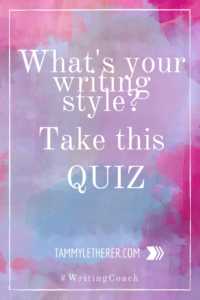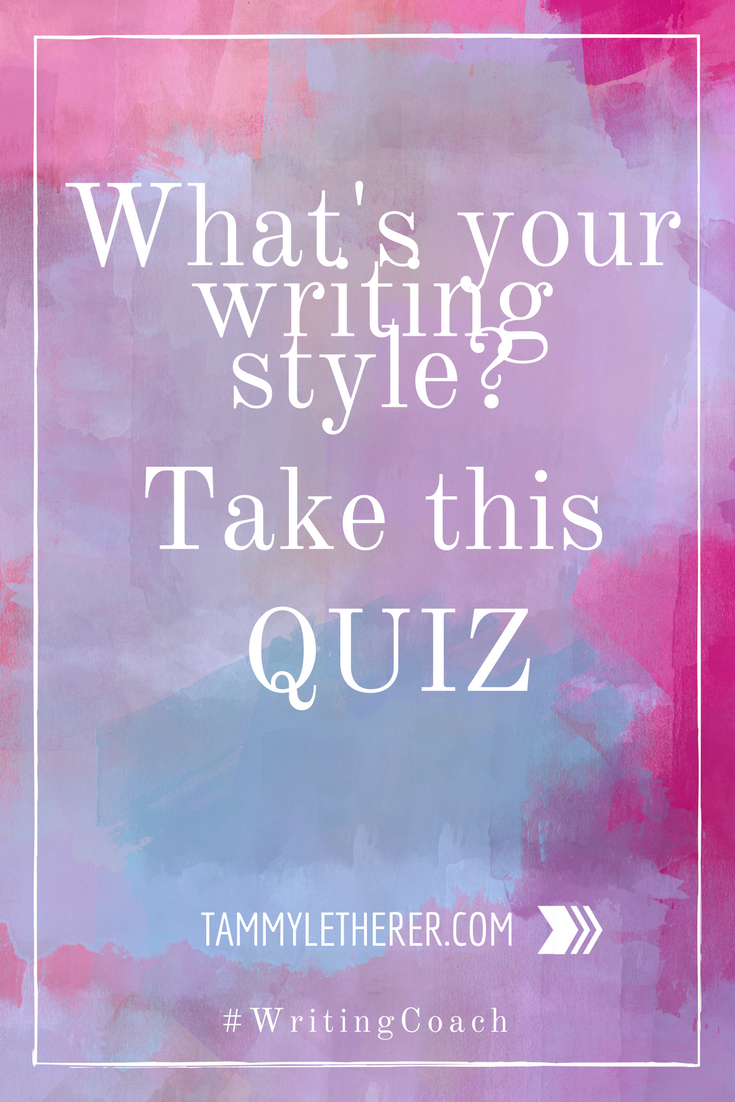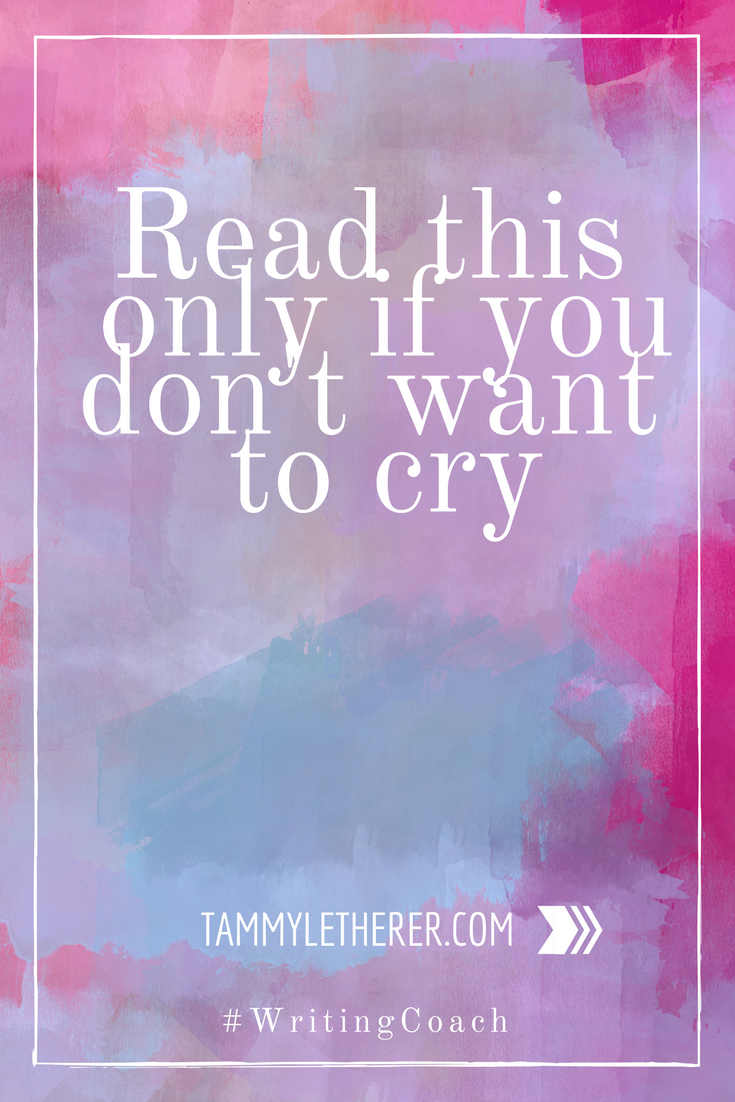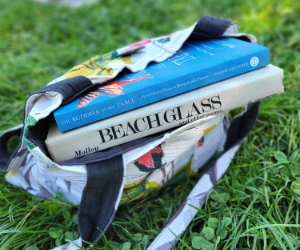 Writing is hard. There’s no point softening that sentence with qualifiers. It’s just hard.
Writing is hard. There’s no point softening that sentence with qualifiers. It’s just hard.
James Joyce said, “Writing in English is the most ingenious torture ever devised for sins committed in previous lives.” Elizabeth Gilbert says that 90% of her writing life consists of nothing more than unglamorous, disciplined labor. “I work like a farmer,” she says, “and that’s how it gets done.”
In my experience the writing itself doesn’t necessarily get easier. But over time, by continuing to write, you can begin to put together a toolbox of tricks to help you through the rough patches. You can learn to use your strengths and outwit or outwait your bad habits.
One strength you may not be fully utilizing is your learning style. Don’t know what that style is? Or how it affects your writing? Take this quiz and find out how to work with, rather than against, your type:
Which letter after each statement best describes you?
- When I read, I often find that I:
(V) Visualize what I’m reading in my mind’s eye.
(A) Read out loud or hear the words in my head.
(K) “Feel” the words and ideas in my body.
- When I write, I:
(V) Prefer to keep my sentences orderly and complete.
(A) Often say the letters and words to myself.
(K) Like to feel the pen in my hand and see the way the words look on the paper.
- If I have to remember a list of items, I remember best by:
(V) Writing them down.
(A) Saying them over and over to myself.
(K) Moving around and using my fingers to name each one.
- When I’m trying to concentrate, I have a hard time when:
(V) There’s a lot of clutter or movement in the room.
(A) There’s a lot of noise in the room.
(K) I have to sit still for any length of time.
- If I have to verbally describe something to someone, I tend to:
(V) Be brief because I don’t like to talk a lot or explain.
(A) Go into great detail because I like to talk.
(K) Gesture and move around while talking.
- When I hear someone describing something to another person, I usually:
(V) Picture what’s being said, as if seeing a movie.
(A) Enjoy listening but want to interrupt and talk myself.
(K) Become bored if the description is too long or detailed.
- When I try to recall names, I remember:
(V) Faces but not names.
(A) Names, but not faces.
(K) The situation in which I met the person, but not the name or face.
- To occupy myself while I wait, I usually:
(V) Look around, read, or stare.
(A) Talk or listen to others.
(K) Walk around, do something with my hands, or tap my foot.
- I learn best when I:
(V) Watch someone show me.
(A) Listen to directions.
(K) Try to do it myself.
- When someone asks me for directions, I:
(V) Prefer to draw them.
(A) Easily describe each step.
(K) Have to point and gesture.
You got 4 or more (V) responses: You process things VISUALLY.
As a writer with a strong visual sense, you need an organized work area in order to avoid distractions. Sitting with busy artwork or bulletin boards in your line of sight can interrupt your flow. You prefer your notes orderly and neat and you work well with an outline. Using Post-its and to-do lists can help you stay on track. For inspiration, look for beautiful or meaningful images, watch movies, or spend time in a bookstore admiring book covers. Use your gift of “seeing” your story unfolding in your imagination to help your writing come easier.
You got 4 or more (A) responses: You are an AUDITORY learner.
Get yourself a “do not disturb” sign or a pair of earplugs, because you are writer who prefers the sound of silence. You’ll want to avoid areas with loud music or conversation when writing, but when collecting ideas, turn on your “writer’s ears” and allow inspiration to come through song lyrics, the sounds of nature, or overhead dialogue. Read your work aloud when you’re stuck and listen for that inner voice that instinctively knows what’s missing. If you don’t already talk to yourself, try it! Brainstorm ideas out loud. And since you thrive on hearing feedback, find a supportive person who will listen and tell you what’s working.
You got 4 or more (K) responses: You prefer to use your KINESTHETIC abilities.
Remember how you were taught in Creative Writing 101 to use all five senses? This is especially true for you, as you are a writer who brings your whole physical self to the page. Check in with your sense of sight, touch, taste, smell, and hearing often, not only as a way to spark your imagination, but also as a way to keep your butt in the chair. If you’re hungry, too cold, or wearing scratchy socks, you’re likely to be cranky and distracted. Moving your body will help you get back in the flow, so set a timer and take breaks to walk the dog, take a shower, or peel an orange. Treat yourself to a moleskin journal and a fancy pen and let yourself doodle or scratch out half-formed thoughts. When you’re blocked, ask yourself what you want your readers to feel, and then trust your gut.
Let me know if any of these suggestions help improve your writing life!
(adapted from “Learning to Study Through Critical Thinking” by J. A. Beatrice)









Huh. Well, according to this, I’m a visual, but I also know I’m very sensitive to sound, and very kinesthetic in my work. I guess it’s good to have a balance of all the styles!